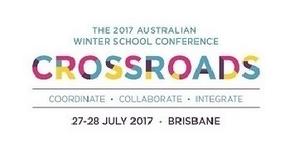Registrations are open for the Australian Winter School 2017, the premier national alcohol and other drugs conference.
The Commission is a proud gold sponsor of this event.
Presented by the Queensland Network of Alcohol and other Drug Agencies and Lives Lived Well, the conference examines prevention, harm reduction and treatment.
It is a great opportunity to:
- hear from leading local and international researchers and practitioners
- update skills and knowledge
- network with colleagues and peers.
The Australian Winter School conference website has more information.
Follow @QLDNADA or @AusWinterSchool on twitter for the latest information and updates on the conference.
Key note speakers
Dr Marc Lewis
Dr Marc Lewis is a cognitive neuroscientist and professor emeritus of developmental psychology, at the University of Toronto from 1989 to 2010, now blogging, writing, and speaking on the science, experience, and treatment of addiction. He is the author or co-author of over 50 scientific journal articles on developmental psychology, emotion, and neuroscience. He now contributes regularly to The Guardian and other popular publications.
Marc discovered that the brain changes that go with addiction don’t indicate a diseased brain but plasticity in response to strong attractions, in a brain that keeps developing. The implications for recovery are vital. He believes treatment succeeds when the assumption of helplessness is replaced by tools for empowerment, insight, and continuing growth.
Professor Alison Ritter
Professor Alison Ritter is an internationally recognised drug policy scholar and the Director of the Drug Policy Modelling Program (DPMP) at the National Drug and Alcohol Research Centre (NDARC) at the University of New South Wales. She is an NHMRC Senior Research Fellow (2012 to 2017) leading a collaborative, multi-disciplinary program of research on drug policy.
The goal of the work is to advance drug policy through improving the evidence-base, translating research and studying policy processes. She has contributed significant policy and practice developments in the alcohol and drug sector over many years. Professor Ritter has an extensive research grant track record. She has published widely in the field, including three edited books; multiple book chapters and more than 200 other publications.
Professor Peter Adams
Professor Peter Adams is currently the Deputy Head, School of Population Health at The University of Auckland and Associate Director, Centre for Addiction Research, New Zealand. Professor Adams practised as a clinical psychologist for over 13 years during which he developed specialist expertise in the area of addictive behaviour and violence.
His current focus is on the application of community strength building approaches to health, leading the development of teaching programmes in alcohol and drug studies, mental health and health promotion and in the University’s research initiatives in violence, addictive behaviour, gambling and community development. He has published more than 100 research outputs including four sole-authored books.
Dr Monica Barratt
Dr Monica Barratt is a NHMRC Post-Doc Research Fellow, at the National Drug and Alcohol Research Centre, UNSW Australia. She joined the Drug Policy Modelling Program at NDARC in 2014 after being awarded a National Health and Medical Research Council post-doctoral fellowship. Monica’s research concerns the social and public health implications of internet technologies for people who use illicit and emerging psychoactive drugs, and the impacts of legislative responses to drug use and drug problems.
Monica is particularly interested in how we respond to the emergence of new/novel drug trends and how they are enabled by digital technologies. She specialises in engaging hard-to-reach networks and groups in digital spaces in conversations about research and policy. Through this engagement, Monica’s work acts as a conduit between these groups and policy makers, and contributes to policy change.

